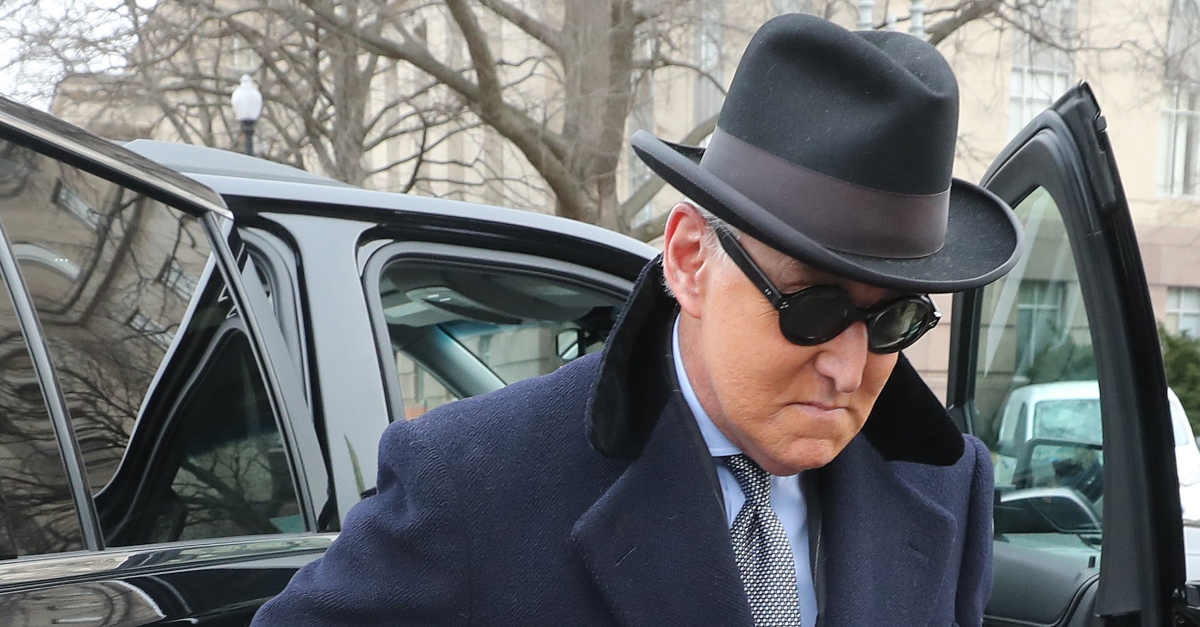
Convicted felon and former Trump campaign surrogate Roger Stone didn’t get his way Sunday. He wanted the presiding judge in his criminal case to step down as he pursued a retrial. She refused and was pretty pointed about it.
“At bottom, given the absence of any factual or legal support for the motion for disqualification, the pleading appears to be nothing more than an attempt to use the Court’s docket to disseminate a statement for public consumption that has the words ‘judge’ and ‘biased’ in it,” U.S. District Judge Amy Berman Jackson wrote in an order dated Sunday.
Stone was sentenced to 40 months in prison last week for obstruction, witness tampering, and lying in the Russia probe. This is less than the 7-to-9 years originally recommended by the DOJ. President Donald Trump complained about this first possible sentence online, the prosecutors in the case withdrew, but their replacements backed the initial recommendation after concerns the POTUS was using his office to cover for his friend.
Nonetheless, Stone’s team don’t want to conviction to stand. After sentencing, they demanded a new trial, saying they discovered evidence of juror misconduct.
“It is alleged that a juror misled the Court regarding her ability to be unbiased and fair and the juror attempted to cover up evidence that would directly contradict her false claims of impartiality,” Stone’s team wrote, though they didn’t name the person in question. That matter remains pending. To be sure, the foreperson on his jury was Tomeka Hart, a former president of the Memphis City School Board of Commissioners. She is no fan of the president.
Stone wanted Jackson to leave the case while all this played out. His team attempted to use something she said at the sentencing against her.
“Congress cared [about the defendant’s lies],” she wrote. “The United States Department of Justice and the United States Attorney’s Office for the District of Columbia that prosecuted the case and is still prosecuting the case cared. The jurors who served with integrity under difficult circumstances cared. The American people cared. And I care.”
The defense took issue with that flattering statement about the jury’s “integrity.” But Jackson announced Sunday she was’t going to leave the case over this. She argued that under case law, “alleged bias and prejudice” from judges must originate from an extrajudicial source, and must end up in an opinion that depended on something other than what the judge learned from participating in the case.
“In other words, judges cannot be ‘biased’ and need not be disqualified if the views they express are based on what they learned while doing the job they were appointed to do,” she wrote.
Colin Kalmbacher contributed to this report.
[Image via Mark Wilson/Getty Images]